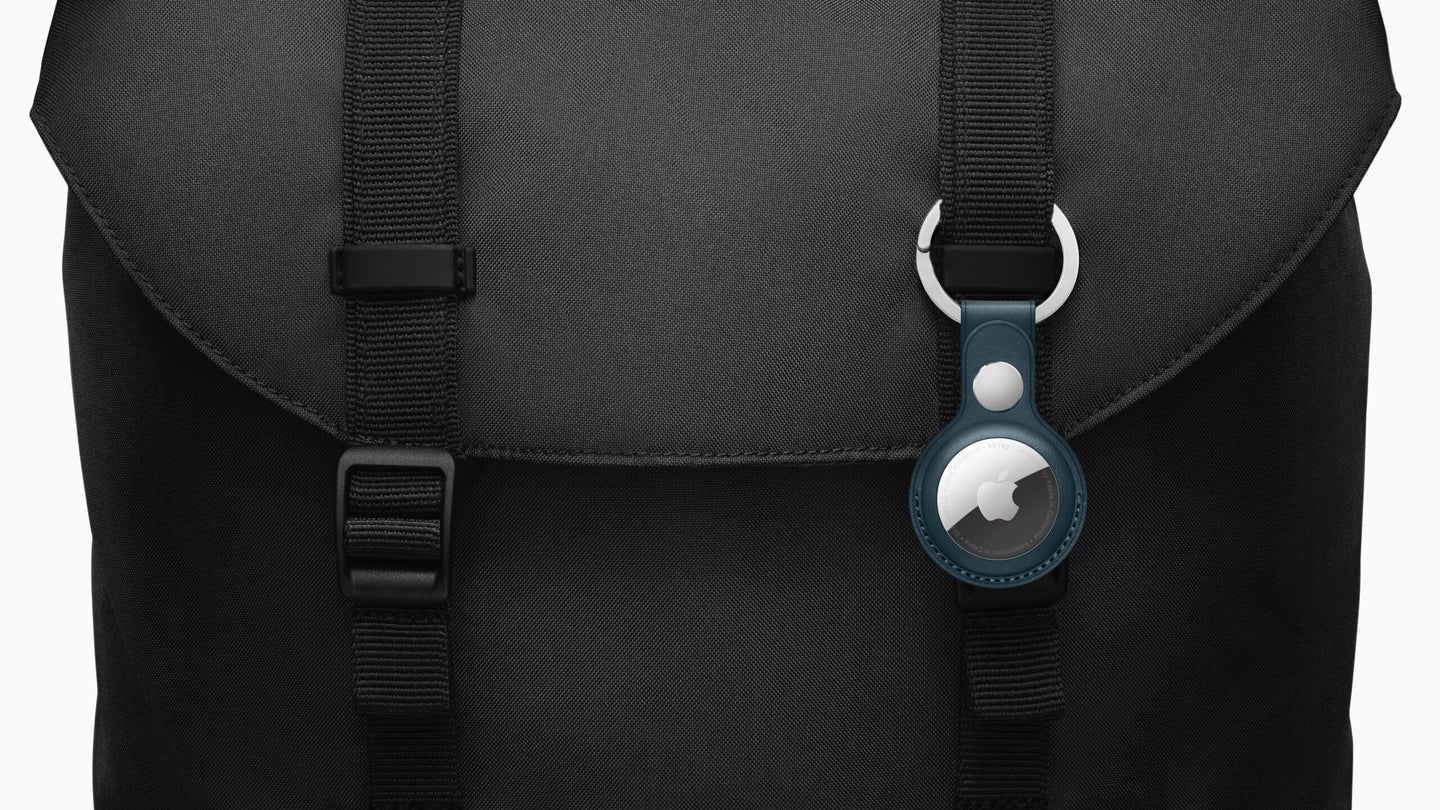Tech giants have a plan to fight dangerous AirTag stalking
A new proposal from Apple and Google could help solve a serious problem with Bluetooth trackers.

Apple and Google have jointly proposed a new industry specification aimed at preventing the misuse of Bluetooth location-tracking devices like AirTags. The new proposal outlines a number of best practices for makers of Bluetooth trackers and, if adopted, would enable anyone with an iOS or Android smartphone to get a notification if they were the target of unauthorized tracking.
Since launching in 2021, Apple’s AirTags have been controversial. The coin-sized Bluetooth devices work using Apple’s Find My network, which is also used to track the location of iPhones, iPads, MacBooks, and other Apple devices. In essence, every Apple device works as a receiver and reports the location of any other nearby device back to Apple; this means that you can still track devices that don’t have GPS or even cellular data. Everything is end-to-end encrypted so only the authorized device owner can see where something is, but that hasn’t stopped AirTags being misused.
While a small location-tracking device with a long battery life that clips to your keys or fits in your bag has some very obvious benefits, they have also been called “a gift for stalkers.” If you can put an AirTag in your coat pocket or handbag, so can someone else. Similarly, it’s easy to find stories of abusive partners using AirTags to track their victims, or thieves using them to track valuable cars.
However, for all the negatives, a lot of people recognize that Bluetooth trackers can be incredibly useful. Just this week, the New York Police Department (NYPD) and Mayor Eric Adams announced that they were encouraging car-owning New Yorkers to leave an AirTag in their cars and said that they would be giving 500 away for free. “AirTags in your car will help us recover your vehicle if it’s stolen,” said NYPD Chief of Department Jeffrey Maddrey on Twitter. “Help us help you, get an AirTag.”
Similarly, there are lots of stories of people using AirTags to get their lost (or stolen) luggage back, find dogs missing in storm drains, and, as the NYPD suggests, recover stolen cars.
The newly proposed industry specification represents a big step toward limiting the potential for abuse from AirTags and other location-tracking Bluetooth devices. At the moment, unwanted tracking notifications are an absolute mess.
Already, iPhone users get a notification if their phone detects an unknown AirTag moving with them—which is likely why there are a lot more news stories of people finding AirTags than other Bluetooth location-tracking devices. They also get a notification if some other Bluetooth location-tracking devices that support the Find My network are found nearby, like eufy SmartTrack devices. However, to find Tile devices, iPhone users have to use an app to scan for them, something they’re only likely to do if they suspect they’re being tracked, or wait for the Tile device to beep after it’s been separated from its owner for three days.
Things are worse for Android users. They have to use the Tracker Detect app to find nearby AirTags and other Find My compatible devices. They also have to use an app to scan for Tile trackers, or wait for them to beep.
If the new specifications are adopted, a Bluetooth location-tracking device that’s separated from its owner—and possibly being used to stalk someone—would automatically alert nearby users of any smartphone platform that they are possibly a target of unwanted tracking, and they would then be able to find and disable the tracker in question. There’d be no need for anyone to use an app to scan for trackers or wait to hear a beep.
In a statement on Apple’s website, Ron Huang, Apple’s vice president of sensing and connectivity, says, “We built AirTag and the Find My network with a set of proactive features to discourage unwanted tracking—a first in the industry—and we continue to make improvements to help ensure the technology is being used as intended. This new industry specification builds upon the AirTag protections, and through collaboration with Google results in a critical step forward to help combat unwanted tracking across iOS and Android.”
And things look promising. Samsung, Tile, Chipolo, eufy Security, and Pebblebee, who all make similar tracking devices, have indicated their support for the promised specifications. There will now be a three-month comment period where interested parties can submit feedback. After that, Apple and Google will work together to implement unwanted tracking alerts into future iOS and Android releases.
